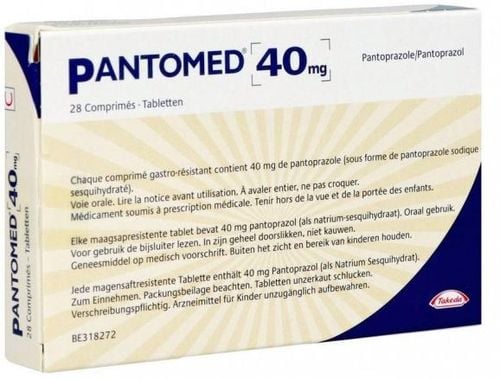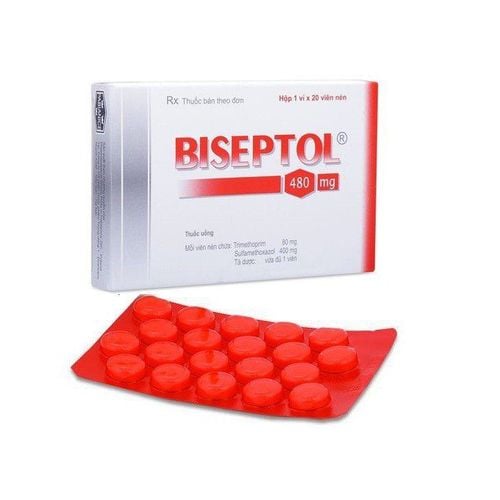This is an automatically translated article.
Belonging to the group of digestive drugs, the drug Agimosarid has the main ingredient is Mosapride citrate 5mg. Agimosarid is used in the treatment of symptoms associated with gastroesophageal reflux disease and chronic gastritis.
1. The effect of the drug Agimosarid
Agimosarid drug belongs to the group of digestive drugs, the main ingredient is Mosapride citrate 5mg. Mosaprid acts on the stomach, increasing the circulation of the stomach and intestines, thereby helping to empty the stomach.
Agimosarid is made in the form of tablets and is indicated for use in the treatment of symptoms in the stomach and intestines such as belching, heartburn, nausea, vomiting, associated with gastroesophageal reflux, with accompanying symptoms. by chronic gastritis.
2. Dosage, usage and side effects of Agimosarid
How to use Agimosarid: Take whole tablet with water, can be taken before or with food. Dosage of Agimosarid: 1 Agimosarid tablet/time, 3 times/day. Overdose of Agimosarid can cause abdominal pain, diarrhea. At that time, the patient should be given activated charcoal, gastric lavage, and monitored for clinical manifestations.
Agimosarid medicine can cause some unwanted side effects such as loose stools, diarrhea, dry mouth, fatigue, irritability, palpitations and an increase in some indicators such as eosinophils, liver enzymes, triglycerides.
3. Some notes when using Agimosarid drug
Do not use Agimosarid in people with hypersensitivity to the drug's components, gastrointestinal bleeding, gastrointestinal mechanical obstruction, gastrointestinal perforation; people who are taking clarithromycin, erythromycin, fluconazole, itraconazole, itraconazole, miconazole, ritonavir, and troleandomycin concurrently; who are at risk or have a prolongation of the Q-T interval. Caution when using Agimosarid in people with heart failure, ischemic heart disease, ventricular arrhythmias, liver failure, kidney failure, hypokalemia, electrolyte disturbances, mechanical obstruction; pregnant and lactating women; premature babies. When using Agimosaride with drugs that reduce potassium in the blood, drugs that prolong the Q-T interval should be used with caution. During the use of Agimosarid, caution should be exercised when the gastrointestinal tract is irritated because it can lead to dangerous situations such as gastrointestinal obstruction, gastrointestinal bleeding. When initiating and discontinuing treatment with Agimosaride, serum drug levels and prothrombin time should be monitored. During the use of Agimosarid, care should be taken when driving or operating machinery. Agimosarid may interact with and reduce the effectiveness of anticholinergics, increase the sedative effect of benzodiazepines, increase the clotting time of anticoagulants and affect the extent of absorption of other drugs (due to increased emptying rate). stomach). Elderly people with liver and kidney failure need to be cautious when using Agimosarid, if there are signs of side effects, the dose should be reduced. Co-administration of agimosarid with CYP3A4 inhibitors may result in significant increases in serum mosapride concentrations and prolongation of the Q-T interval. In this case, it can lead to ventricular arrhythmias and, most importantly, death. Co-administration of Agimosaride with CNS depressants, antifungal agents, cimetidine, diazepam, erythromycin, warfarin increases the concentration of mosapride. The use of Agimosarid is to speed up gastric emptying, thereby reducing symptoms in gastroesophageal reflux disease, gastritis. chronic. Knowing the effects of the drug will help the process of using it more effectively.
Please dial HOTLINE for more information or register for an appointment HERE. Download MyVinmec app to make appointments faster and to manage your bookings easily.













